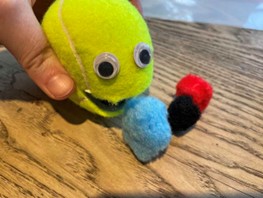Table of Contents
Understanding the Unique Perspectives and Experiences
Autism spectrum disorder (ASD) is a complex neurodevelopmental condition that affects individuals in unique and diverse ways. To truly understand and support individuals with autism, it is crucial to look through their eyes, exploring their perspectives and experiences. In this blog post, we will embark on a journey of understanding autism from within, shedding light on the sensory sensitivities, communication challenges, social dynamics, and cognitive differences that shape the autistic experience. By gaining insights into the world of autism, we can foster empathy, appreciation, and create a more inclusive society that embraces neurodiversity.
Sensory Sensitivities and Perceptions
Autistic individuals often experience sensory sensitivities that can significantly impact their daily lives. Understanding these sensitivities is essential for creating supportive environments. Consider the following aspects:
a) Sensory overload: Autistic individuals may have heightened sensitivity to stimuli, such as loud noises, bright lights, or strong smells. Everyday sensory experiences that may seem insignificant to others can be overwhelming, leading to anxiety or meltdowns.
b) Sensory-seeking behaviours: On the other hand, some individuals with autism may actively seek sensory input to regulate their sensory systems. They may engage in repetitive behaviours, like rocking or hand-flapping, to provide self-soothing or stimulatory sensory input.
c) Individual differences: It’s important to remember that each person with autism has unique sensory profiles. Sensitivities and preferences can vary, and what may be overwhelming for one person might be comforting or enjoyable for another.

Communication Challenges and Alternative Means
Communication difficulties are a core feature of autism and can significantly impact social interactions and relationships. Exploring alternative means of communication is crucial for bridging these gaps. Consider the following perspectives:
a) Non-verbal communication: Some individuals with autism may have limited or no verbal speech. This does not indicate a lack of intelligence or understanding. Alternative communication methods, such as sign language, picture-based communication systems, or augmentative and alternative communication (AAC) devices, can provide avenues for expressing thoughts, needs, and desires.
b) Literal interpretation: Autistic individuals often have a tendency to interpret language literally. Idioms, sarcasm, or abstract concepts may be challenging to grasp. Using concrete and precise language, visual supports, or social stories can enhance comprehension and reduce misunderstandings.
c) Social communication challenges: Understanding and navigating social interactions can be perplexing for individuals with autism. Difficulties in understanding non-verbal cues, reading facial expressions, or interpreting social nuances can lead to social isolation or misunderstandings. Patient and explicit explanations, social skills training, and visual supports can support their social development.

Embracing Cognitive Differences and Strengths
Autism is associated with cognitive differences that impact information processing, learning styles, and problem-solving approaches. Embracing these differences can lead to a more inclusive society that values neurodiversity. Consider the following perspectives:
a) Unique learning styles: Autistic individuals often have distinct learning styles, such as visual, kinaesthetic, or pattern-based learning. Capitalizing on their strengths and providing varied learning opportunities can enhance their engagement and academic success.
b) Attention to detail: Autistic individuals often exhibit an exceptional attention to detail. This attention can contribute to remarkable skills in areas such as visual arts, mathematics, or technology. Encouraging and nurturing these strengths can boost self-esteem and promote skill development.
c) Intense interests and passions: Many autistic individuals develop intense interests or obsessions in specific subjects or topics. These passions can serve as avenues for engagement, self-expression, and potential career paths. Supporting and encouraging these interests can foster motivation, confidence, and lifelong learning.

Social Dynamics and Building Inclusive Communities
Navigating social dynamics can be challenging for individuals with autism. Building inclusive communities that embrace neurodiversity is essential for fostering acceptance and creating opportunities for social connections. Consider the following perspectives:
a) Acceptance and empathy: Embracing neurodiversity requires a shift in societal attitudes. Promoting acceptance, empathy, and understanding can create an environment where autistic individuals feel valued, accepted, and included.
b) Peer education and awareness: Educating peers and fostering awareness about autism can reduce stigma and misconceptions. By promoting understanding and empathy among classmates, colleagues, and community members, we can cultivate inclusive spaces for individuals with autism.
c) Supportive social environments: Creating social environments that accommodate diverse communication styles, sensory needs, and social preferences is crucial. Structured social activities, sensory-friendly events, and peer support networks can provide opportunities for meaningful interactions and friendships.

Looking through the eyes of autism enables us to gain a deeper understanding of the unique perspectives and experiences of individuals with autism spectrum disorder. By recognizing and appreciating sensory sensitivities, communication challenges, cognitive differences, and social dynamics, we can create a more inclusive society that celebrates neurodiversity.
Embracing the strengths and talents of autistic individuals, fostering alternative means of communication, promoting empathy and acceptance, building supportive communities and getting support from specialised Therapists are essential steps towards a more inclusive future. By learning from the autistic experience and embracing their perspectives, we can promote equity, understanding, and empowerment for individuals with autism.







